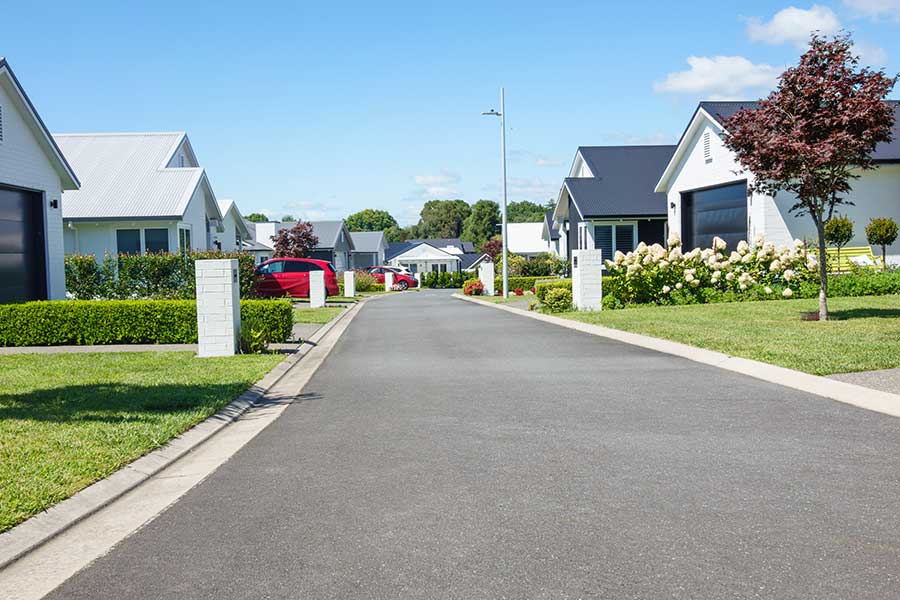
Clean Water Is Vital for Public Health and the Environment
The presence of clean water has determined the resilience and sustainability of communities since the beginning of time, but civilization has evolved since the first cities developed near rivers. Today’s master-planned communities (MPCs) are designed to give homeowners everything they need for healthy, happy, well-rounded lives. Convenient schools, green spaces, recreation, commercial and retail areas, and easy access to essential services round out the package, but a safe, abundant water supply is still the foundation.
Residents in master-planned communities rely on a safe water supply for drinking, cooking, and daily activities, and ensuring that water is free from pollutants is essential to public health. To address these concerns effectively, comprehensive water treatment strategies are paramount.
Environmental Stewardship Through Innovative Wastewater Solutions
Surface water and groundwater resources that MPCs depend on are vulnerable to contamination from domestic wastewater, and that can spell disaster. Inadequately treated wastewater can harm local ecosystems, affecting aquatic life and biodiversity.
Given the urgent demand for housing in many MPCs, waiting for local utilities to extend sewage pipelines for treatment may not be feasible. Consequently, onsite or decentralized treatment emerges as a practical solution. Decentralized package plants, characterized by their modular units that facilitate swift delivery and installation, offer a flexible approach to addressing wastewater treatment needs.
One particularly effective solution, the membrane bioreactor (MBR), stands out for its ability to deliver high-quality effluent suitable for MPCs. Combining advanced membrane filtration with traditional biological treatment, MBR units offer compact, low-noise, and low-odor operation, making them ideal for placement near residential areas.
In Texas, these units can be installed as close as 150 feet away, aligning with the rapid pace of MPC development. Moreover, MBR technology expedites the approval process, typically receiving the green light from regulatory bodies like the Texas Commission on Environmental Quality (TCEQ) in just five months, compared to the 12 to 18 months required for traditional projects.
Furthermore, effective water treatment contributes to conservation efforts by promoting water reuse programs, a critical sustainability measure for MPCs. By implementing robust reuse programs, communities can minimize the unnecessary consumption of drinking water for activities like landscape irrigation, pavement washing, and toilet flushing, preserving precious resources and supporting ecosystem health. Beyond wastewater treatment, water reuse initiatives serve as a proactive step toward sustainable water management.
Infrastructure Longevity
Poor-quality water not only damages ecosystems but can also damage infrastructure with corrosive compounds, so water treatment helps protect collection and distribution pipe networks, extending their service lives and reducing maintenance costs. Scale deposits can build up in pipes and appliances, so measures to reduce scaling protect the investments of homeowners and homeowner associations alike.
Residents want clear, odorless water when they turn on showers and taps. Water treatment addresses issues like iron and manganese content, preventing stains on fixtures, appliances, and laundry. While the look and smell of excessive iron in water might not be dangerous, sparkling-clear water enhances resident satisfaction and the aesthetic appeal of master-planned communities. Thus, comprehensive water treatment not only safeguards infrastructure but also enhances the overall living experience for residents.
Regulatory Compliance
One of the big challenges in the water sector today is the increasingly high standards set by regulatory bodies, both in the United States and around the world. Master-planned communities must maintain compliance with water quality standards, and what is compliant today might be an infraction tomorrow. Implementing robust water treatment processes ensures compliance with these standards, preventing legal troubles and ensuring that the community’s reputation remains intact.
Where regulatory compliance is challenging, MBR may represent the most efficient solution. Although costs can be higher than for traditional plants, superior MBR effluent aces all existing standards for discharge and reuse.
Property Values and Community Image
Access to clean and safe water enhances quality of life. Communities with a strong focus on water quality are likely to attract homebuyers and retain higher property values.
A commitment to water treatment reflects positively on the community’s image and enhances ESG profiles. Sustainability practices, including responsible water management, contribute to a positive perception among residents and potential investors.
The quality of water entering and leaving master-planned communities influences their desirability in ways that are hard to overestimate. It affects health, environmental sustainability, infrastructure integrity, resident satisfaction, community image, and many other aesthetic factors. Establishing a solid foundation of water infrastructure in a planned community is as important as the solid foundations of the homes it will serve.
Although it is easy to forget the importance of access to quality water, it has been the biggest catalyst for thriving human communities since the very beginning, and the smart money says it still is. To ensure your master-planned community thrives, contact AUC to explore financing options and technologies that are tailor-made for today’s master-planned communities.


